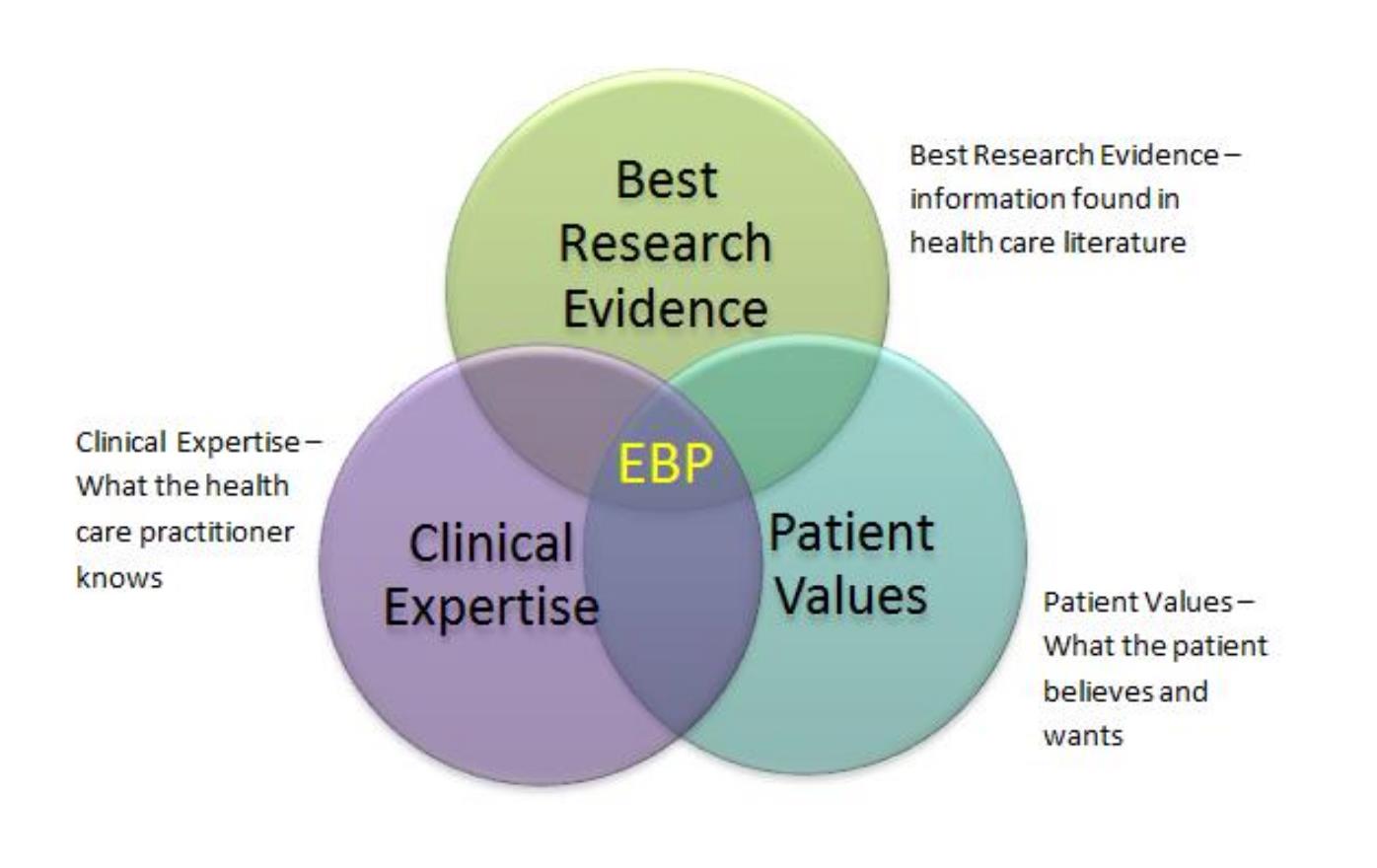EBP(Evidence Based Practice)
A way of providing health care that is guided by a thoughtful integration of the best available scientific knowledge with clinical expertise. This approach allows the practitioner to critically assess research data, clinical guidelines, and other information resources in order to correctly identify the clinical problem, apply the most high-quality intervention, and re-evaluate the outcome for future improvement. (NLM Mesh definition)
The conscientious, explicit and judicious use of current best evidence in making decisions about patient care. A lifelong problem-solvingapproach to clinical practice that integrates:
1.The most relevant and best research evidence to answer a burning clinical question
2.Clinical expertise
3.Patient preferences and values
(Sackett, D. L., Straus, S. E., Richardson, W. S., Rosenberg, W., & Haynes, R. B. (2000). Evidence-based medicine. How to practice and teach EBM. London: Churchill Livingstone.)
Three Key Elements of EBP

(Armstrong, E. C., (2003). Harnessing new technologies while preserving basic values. Families, Systems, & Health. 21 (4), 351-355.)
EBP:A key to reach the Triple Aim
Institute for Healthcare Improvement: The IHI Triple Aim
1.Enhancing the experience of care
2.Improving the health of populations
3.Reducing per capita costs of health care
(Berwick, D. M., Nolan, T. W., & Whittington, J. (2008) The triple aim: Care, health and cost. Health Affairs, 27(3), 759-769.)